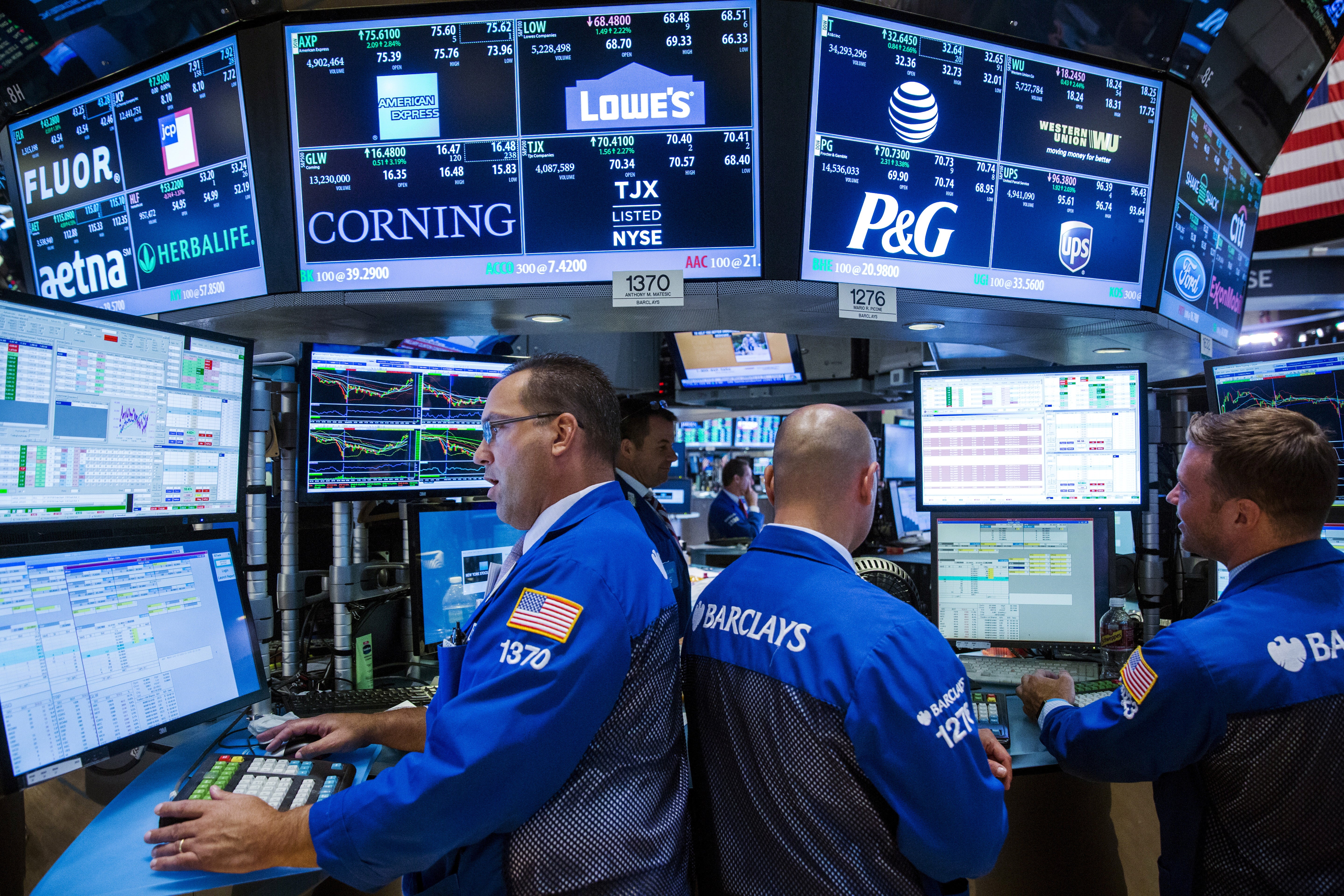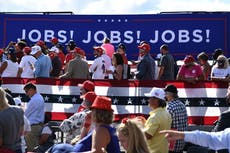How might financial markets respond to the US election result?
A Biden victory is expected by markets, but what is likely to happen if the result is inconclusive or contested? What happens if there is a surprise Donald Trump victory? Ben Chu looks at the possibilities


The opinion polls suggest a strong likelihood of a win for Joe Biden in the US presidential election – but what would that mean for financial markets?
Given the former vice president has had a considerable polling lead throughout most of this campaign, does that imply that the markets will have already “priced in” that outcome? Or could there be further moves if the result is confirmed? And what, by that same token, is likely to happen if the result is (at least initially) inconclusive or contested?
What happens if there is a surprise Donald Trump victory? Would markets plunge?
Many analysts agree a Biden victory is mostly priced in by US stock markets, which have been rising strongly since the collapse in March.
The S&P 500 index, comprising the top 500 US companies, is now trading close to a record high, having recovered all the vast losses from earlier this year.
Though Biden proposes to hike corporation tax if he wins, which would likely hit the share prices of many of these firms, he also plans to considerably increase state infrastructure spending too, which would likely boost corporate profits and thus support share prices.
For this reason, analysts think the prospect of a Biden victory has been helping stock market valuations in recent months, or at least not hindering them.
A bigger question for markets, say many analysts, is what happens in the much less predictable Congressional elections, for control of the House of Representatives and the Senate, because this would profoundly influence how much fiscal stimulus is actually enacted.
“A Democratic sweep [of the White House and Congress] would suggest a $2tn stimulus package that could significantly support the economy next year, while a split Biden presidency/Republican Senate would mean a far more marginal fiscal boost, perhaps as little as $500bn,” says Anthony O’Brien of First Sentier Investors.
So a “blue wave” result could boost share prices and encourage investors to shift into higher growth and more volatile US companies.
As for US bond markets, some think a Democrat sweep in the elections, and the additional public borrowing it would entail, would see a fall in the traded price of US government debt, pushing Treasury bond yields (and effective US interest) rates up.
Conversely, a failure of the Democrats to take the Senate would have the opposite effect.
“A divided congress would make any agreements on a large-scale stimulus more difficult and as such be less positive for risky assets and less negative for bonds,” says Jussi Hiljanen of the Nordic corporate bank SEB.
However, the rise in interest rates resulting from a Democrat sweep would probably not be particularly large. Moreover, the US central bank, the Federal Reserve, would likely step in to supress rising bond yields through more government debt purchases in order not to impede the US recovery.
The value of the US dollar would, though, probably fall against other currencies in the event of a blue wave result, again based on expectations of more government stimulus which be expected to push up US domestic inflation.
But what if the White House result is contested?
The financial economist Nouriel Roubini notes that US stock markets sank by 7 per cent after the contested presidential election in 2000 between George W Bush and Al Gore, which was not settled until the Supreme Court ruled in favour of the Republican candidate on 12 December.
“This time, the uncertainty could last for much longer - perhaps even months - implying serious risks for the markets,” he says.
A contested election “seems underpriced by markets,” warns Guilhem Savry of the asset manager Unigestion.
As for a shock Trump victory, this would likely be positive for markets stock, just as his 2016 victory was, mainly because his major corporation tax cut would not be reversed. There might well be severe volatility immediately after the result, though, as occurred on the night of his 2016 win, as this is often how speculators and investors respond to unexpected political results.
Yet some analysts also caution that it’s important to take a step back. While markets do gyrate on short term political news it’s fundamental economic trends, such as rising productivity, that matter more in the long run.
“There is a risk of exaggerating the implications [of the elections] for the economy and financial markets,” says Neil Shearing of Capital Economics.
“Despite their protestations to the contrary, presidents do not tend to have a significant bearing on domestic growth.”
And what might also matter more than the election, even in the short term for financial markets, say analysts, is the fight against the pandemic and a breakthrough on producing a vaccine. This would likely boost markets regardless of who occupies the White House.
Join our commenting forum
Join thought-provoking conversations, follow other Independent readers and see their replies
Comments


Bookmark popover
Removed from bookmarks